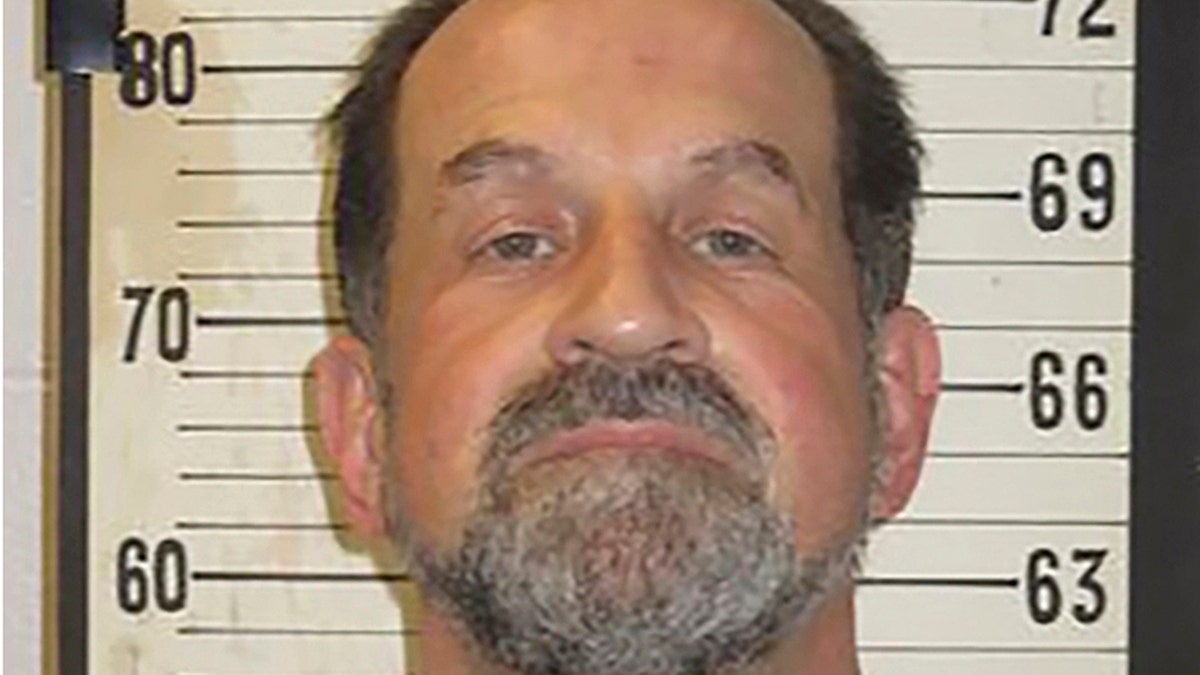Fox News Flash top headlines for Feb. 20
Fox News Flash top headlines are here. Check out what's clicking on Foxnews.com.
Convicted murderer Nicholas Todd Sutton was executed in Tennessee’s electric chair Thursday night, marking the fifth time the state has used that method of execution since 2018, according to reports.
Sutton -- who was sentenced to death in 1986 for killing a fellow inmate a year earlier, after being convicted of three other murders in 1979 -- was pronounced dead at 7:26 p.m. CST at the Riverbend Maximum Security Institution in Nashville, according to the Tennessee Department of Correction.
Witnesses said Sutton looked forward to his execution with a solemn expression just prior to his death, The Tennessean of Nashville reported.
“I’m just grateful to be a servant of God, and I’m looking forward to being in his presence. And I thank you,” Sutton reportedly said in his final statement.
CAPITAL PUNISHMENT, WHICH STATES HAVE IT AND WHAT METHODS DO THEY USE?
In addition, Sutton thanked his wife and his family “for their love and support as they tried so very hard to save my life," the newspaper reported.

Nicholas Sutton, 58, was executed Thursday at Riverbend Maximum Security Institution in Nashville after being sentenced to death in 1986 for killing a fellow inmate. He had been serving time for murdering his grandmother and two others when he was 18. (Tennessee Department of Correction via AP)
Sutton was initially convicted of killing three people in 1979, including his grandmother Dorothy Sutton, his high school friend John Large and Charles Almon. However, he was sentenced to death for his involvement in the fatal stabbing of fellow inmate Carl Estep in 1985.
In a statement read by a Department of Correction official prior to the execution, Large's sister Amy Large Cook expressed relief.
“At least that chapter will be over," she said.
"John was denied the opportunity to live a full life with a family of his own," Cook’s statement said. "He suffered a terrible and horrific death, and for that I will never forgive Mr. Sutton."
Sutton was originally scheduled to be executed by the state in 2015, the report said. However, legal delays blocked that date.
Sutton's attorneys had sought intervention from either the courts or Gov. Bill Lee to delay or commute the execution. They pointed to what they claimed were issues in the trial that put him on death row as well as his remarkable transformation in prison, where correction officers said he had saved multiple lives.
DEATH ROW INMATES' LAST WORDS
Lee was not swayed and declined Sutton's clemency application earlier this week, The Tennessean reported. The U.S. Supreme Court also denied a request for a stay minutes before he was put to death.
'Sutton signature'
Sutton’s killing spree began when he was 18 and led to investigators recognizing what they labeled the “Sutton signature,” which included placing bodies wrapped in plastic or bound in chains and weighted with cinder blocks.
He killed his childhood friend Large and Almon, a Knoxville contractor before targeting his grandmother, who adopted him after a childhood of abuse, neglect and addiction, the newspaper reported.
Sutton knocked her unconscious with a piece of firewood, wrapped her in a blanket and trash bags, chained her to a cinder block and threw her alive into the Nolichucky River in Hamblen County. An autopsy found she drowned in the icy waters.
CALIFORNIA TO MOVE HUNDREDS OF INMATES OFF LARGEST DEATH ROW; EX-DA CALLS IT 'SLAP TO THE FACE' OF VICTIMS
Following his conviction on first-degree murder charges in his grandmother’s killing, Sutton eventually led authorities to Large's body and sentenced him to life in prison. He'd killed Large, 19, on a trip to Mount Sterling, N.C., and buried his body in a shallow grave on property that belonged to Sutton's aunt.
On Jan. 5, 1985, Sutton helped stab Carl Isaac Estep, a convicted child rapist from Knoxville, more than three dozen times at Morgan County Regional Correctional Facility, resulting in a jury sentencing him to death.
BILL BARR SAYS HE'D TAKE FIGHT TO RESTART FEDERAL EXECUTIONS TO SUPREME COURT IF NEEDED
Sutton never disputed his role in four killings, but his lawyers said a history of altruism behind bars and other mitigating factors showed he deserved mercy, The Tennessean reported.
Inadequate trial representation had blunted Sutton's opportunities to avoid the death penalty, they explained. They added "pervasive childhood trauma" had warped his brain.
CLICK HERE TO GET THE FOX NEWS APP
In their application, his lawyers said his father "was a violent, abusive and unstable man who suffered from severe mental illness, struggled with substance abuse and was repeatedly institutionalized."
Sutton started taking illicit drugs with his father by 12, his lawyers wrote, beginning a lifelong addiction, the newspaper reported.
In addition, Sutton's lawyer’s application said he had "gone from a life-taker to a life-saver" after becoming sober in prison.
His clemency application cited accounts from three prison officers who said Sutton stepped in to save their lives when he didn't have to, twice stepping between staff and angry inmates to diffuse potentially lethal conflicts.
The Associated Press contributed to this report.





















